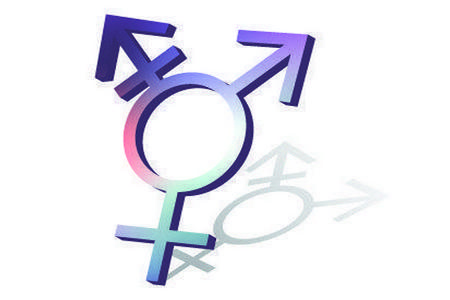Transgender Rights in Family Law: Illinois Creates Right to Change Gender Markers on Important Legal Documents
 In June 2014, Illinois welcomed the expansion of its Marriage and Dissolution of Marriage Act by incorporating provisions that offer same-sex marriage benefits to same-sex couples. This has not only opened the door to same-sex couples but also to help transgendered citizens to be able to enter into marriage regardless of whether they transitioned before or after entering into marriage. The movement in favor of creating a space for transgendered individuals has moved throughout the country and Illinois has been no exception.
In June 2014, Illinois welcomed the expansion of its Marriage and Dissolution of Marriage Act by incorporating provisions that offer same-sex marriage benefits to same-sex couples. This has not only opened the door to same-sex couples but also to help transgendered citizens to be able to enter into marriage regardless of whether they transitioned before or after entering into marriage. The movement in favor of creating a space for transgendered individuals has moved throughout the country and Illinois has been no exception.
The Importance of the New Shift Toward Gender Marker Changes
In the last two years, Illinois has provided members of the transgender community the legal ability to change their gender markers on various legal documents, including their Illinois birth certificates, as well as their Illinois government IDs. Part of what makes the change in law so integral to the rights of the transgender population is that no longer will transgender people be required to go through genital surgery to be able to change the gender marker. This has been transformative to the transgender community as it provides those within the community the right to change their gender markers to the identities that they identify with more closely without having to go under the knife, especially since sexual reassignment surgery may not be an option or a desired outcome for many.
Illinois’s New Policy
In the past, Illinois required that individuals not only have gender reassignment surgery, but that the surgery must be done by a physician licensed in the United States. Nowadays, with the passing of this new policy and with the change of the same-sex marriage laws, transgendered individuals no longer require a court order to change genders, though documentation is still required either through a medical report form, a psychiatric report form, a physician’s statement or any other type of legal or medical documentation asserting the change.
Published Guidelines to Protect Transgender Community
In January 2014, Illinois’s Secretary of State published new guidelines to help those in the community change their gender markers on important legal documents. Illinois sponsoring this type of information provision is extremely beneficial for the transgendered community, as it carves a space out in our society for them. Though in the past, changing the gender marker of the individual had a specific impact on such family rights like right to marriage, right to adopt, and other related rights that opposite-sex married individuals already enjoyed, making this change still has an effect on family law rights.
How Does This Affect Family Law Rights for Transgender People?
One of the ways in which being a transgender person could affect family law rights was the possibility that this identity change post-marriage could negatively impact your family. For example, one of the ways in which a marriage may be voided is if “fraud involving the essentials of marriage” has been indicated. Though a decision to change sex is not per se a “fraud,” if a wife enters into a marriage with a husband who post-marriage decides to transition to become a woman, the wife may have a claim that this is a type of fraud involving the essentials of marriage and that she did not enter into this relationship knowing that this change was a possibility.
Legal Vulnerabilities: How to Protect Yourself and Your Family
Transgender people or those considering gender reassignment are still, as seen in the example above, in a position of legal vulnerability. For a transgendered person to protect him or herself, certain documents should be executed that plan for any type of challenge to the validity of the marriage. The Human Rights Campaign advises that transgendered people should execute (for legal safety net purposes):
- A last will and testament;
- Financial and medical powers of attorney; and
- An acknowledgement agreement from the non-transgender partner stating that he or she is aware of his or her spouse’s transgender status and that should help to void any later claims for fraud or deception.
These documents will ensure that even if later there are challenges to the validity of the marriage for one reason or another, the rights ordinarily enjoyed by married couples are extended to this couple no matter what the court decides.
Experienced Family Law Attorneys in DuPage County
The family law attorneys at Mevorah & Giglio Law Offices can help advise you on any complex family law matters that may arise. Contact our skilled DuPage County family law attorneys today for a free and confidential consultation.
 English,
English,
 Spanish,
Spanish,
 Polish,
Polish,
 Urdu
Urdu













 Make a Payment
Make a Payment



